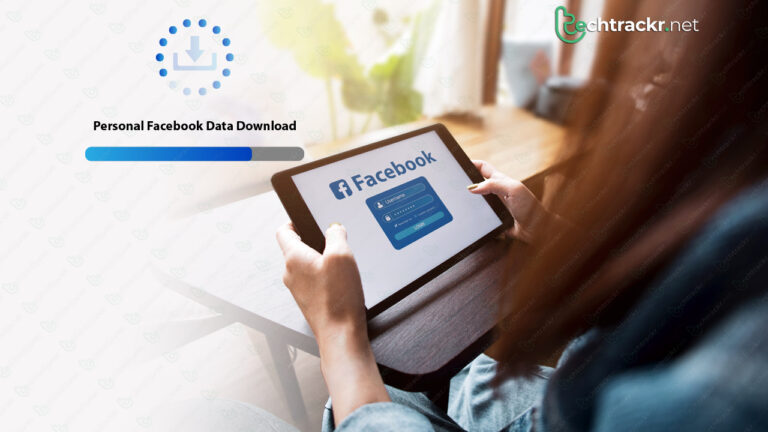
Have you ever wondered just how much data Facebook hangs onto from your Timeline? Whether it’s monitoring your friend requests or the pages you’ve given a thumbs-up to, Facebook keeps a full record of everything you do.
You might be wondering, “Why go through all these steps to check my data? Is it really worth it?” Well, discovering the scope of your Facebook data can be pretty eye-opening. You can grab an archive to access all the info Facebook has about you. Facebook gives you a 4-day window to save this archive on a Chromebook, phone, tablet, or computer. To ensure you don’t miss the deadline, we’ve created a guide that walks you through getting a full copy of your personal data on both PC and mobile.
How is your personal data used?
Now, you might be wondering, why does Meta feel the need to track everything you do on Facebook? Well, it’s not because they want to sell your data to random companies. According to the Meta Privacy Policy, they use your info to make their own products and services better, which includes the ads they display to you.
Meta’s aim is to make ads feel more tailor-made and on point, so you’re more likely to find them interesting and give them a click. Plus, your data is part of what helps them fine-tune the algorithms that drive your Facebook feed, recommendations, and other stuff they handpick for you.
But if you’re still not comfortable with all of this, you can always choose to delete your Facebook account for good. This will take away a big chunk of your personal data. Just remember that Meta might hold onto some log data related to your account.
Also read: Want to connect your AirPods to PS5? Here’s how to do it
How to download your data from Facebook
To keep things secure, you’ll only get a four-day window to grab your profile once it’s prepared. Facebook will put up a folder with HTML (or JSON) files and give you a heads-up when your data is good to go.
Steps to download Facebook data:
- Go to the Facebook homepage and log in.
- Find the profile picture icon on the right-hand side, next to the notifications (bell icon).
- Select “Settings & privacy.”
- Click on “Settings.”
- Scroll down until you see “Download your information” and click “View.”
- Choose “Request a download” and then “Complete copy.”
- To confirm your request, click the “Submit request” button.
The time it takes for your download to show up depends on your chosen data preferences. Keep in mind, this is a secure process, so you’ll have to enter your Facebook password again to access the downloadable info. You can check on your pending requests on the same page, and if you have a change of heart, you can also cancel the request.
Also read: How to fix the annoying camera woes on your Chromebook
Can Facebook data be downloaded from the mobile app
To snag your data on a mobile device, you’ll need to use the Facebook app. If you haven’t got the app yet, you can find a link to it in our app widget below. The steps here were carried out on an Android phone, but you can do the same with the iOS app.
- Launch the Facebook mobile app.
- Tap the hamburger button found near the notifications (bell icon).
- Scroll down and select “Settings & privacy.”
- Tap on “Settings.”
- Scroll down to “Your information” and choose “Download your information.”
- Click on “Request a download.”
- Opt for “Complete copy”; if you want all your data, change the Date range to “All time” (and tap “Save”).
- Finally, tap “Submit request.”
What to look for in the Facebook data?
All your info is saved in HTML files (unless it’s JSON), and you can organize your data by opening these folders. For instance, if you’re interested in checking out how Facebook tailors ads according to your likes, you can explore the ads_information folder and read the files it contains in your web browser. Remember, all this stored data is still quite sensitive, potentially revealing things like your location, IP address, and even message history with precise timestamps.
After you’ve finished going through the file, we suggest getting rid of it completely, or at the very least, think about encrypting it. And keep in mind, if your Facebook account ever gets hacked, or if you’ve recently shared your login details, it’s a good idea to take action to secure your account before it’s too late.
You privacy matters!
We all know that Facebook has gone through quite a transformation over the years. It used to be our go-to platform for staying connected with family and friends. However, now that we’re aware of how much personal data Facebook gathers in the app, maybe it’s time to diversify a bit and not rely solely on it. If you’re using Facebook primarily for chatting, there are definitely some better alternatives out there that take your privacy more seriously.
You might want to think about using reliable, secure messaging apps that keep your chats away from snooping eyes. Alternatively, if you’re set on sticking with the same ecosystem, Meta offers the option of turning on end-to-end encrypted chats in Facebook Messenger.
